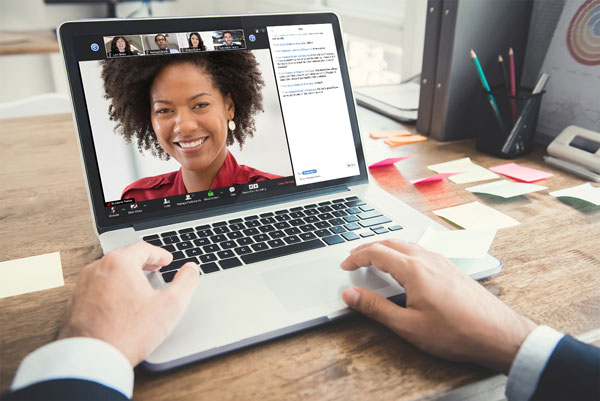President's Blog: From the Heart

The Verdict: A Legal Education Pioneer
By Eric F. Spina
Audiences would agree that the fictional rural town in Alabama where Atticus Finch advocated for justice in the classic film To Kill a Mockingbird was well-served by this small-town lawyer.
But that’s Hollywood.
It’s not the same for countless real-life communities in our country that sit in “education deserts” and are underserved by lawyers.
When the University of Dayton’s School of Law launches its Law@Dayton hybrid Juris Doctor (JD) degree next fall, we will be on the forefront of making a law degree more accessible to more students from more places.
I applaud the way our law faculty are radically rethinking legal education in the digital age through a partnership with 2U, the national leader in supporting high-quality, high-touch education. As we begin fielding inquiries and applications, scores of individuals from across the country will be learning about the Dayton difference.
Through the power of technology, we will meet law students where they are — whether it’s here in Dayton, Ohio, big cities like Chicago or St. Louis, or rural, underserved towns all over the country stretching from Maine to Oregon.
These future lawyers don’t have to quit their day jobs, pick up their lives, and move here. Instead, we will be one of only four law schools in the country (and one of only two at a comprehensive university) accredited by the American Bar Association to offer an online hybrid JD program. Students can earn a University Dayton law degree in four years and be prepared to take the Uniform Bar Exam, adopted by a growing number of states.
“Consider how impactful that is — students learning from one of the nation's best legal institutions while living in and serving their own communities in need,” said Andrew Hermalyn, president of 2UGrad.
Faculty members Vicki VanZandt and Lori Shaw will soon travel to 2U’s state-of-the-art production studio in Arlington, Virginia, to record online interactive sessions. This material, which can be viewed 24-7 on a computer, tablet or mobile app, will supplement the weekly evening webcam classes, “Legal Profession I” and “Torts.” In the weekly live sessions, the photos of 25 students in each section of these classes will pop up on the professors’ screens, much like a modern version of the game show, “Hollywood Squares,” as they recreate the same high-quality experience students receive in the residential program.
The 50 students in the inaugural class also will travel to campus three different times during the year for intensive engagement with each other and with the faculty. While here, the students will participate in mock trials and other experiential learning activities.
When Provost Paul Benson and I recently met with Dean Andy Strauss and the leadership team in the School of Law, we left energized by the enthusiasm of law faculty for experimenting with new ways of teaching and learning.
“This degree will open up new markets — and open up access,” says VanZandt, assistant dean of the hybrid JD program. "Legal education should not be for the elite few whose lives just so happen to fit neatly into the narrow geographical and life windows afforded by full-time, fully residential programs. There are a lot of talented individuals for whom this program will open up a world of possibilities.”
I congratulate the faculty and staff in the School of Law, which has a reputation for being a trailblazer. We were the first law school in the nation to offer an accelerated two-year degree. We were the first to recognize the inherent value of experiential learning and require an externship. Last fall, the school launched a highly popular graduate program — for lawyers and non-lawyers — on government contracting and purchasing. And, seeing an opportunity to prepare international lawyers to sit for the bar exam in Washington, D.C., law professor Jeff Schmitt and colleagues travel to Korea twice a year to teach bar preparation courses.
The University of Dayton is not just imagining the future of legal education; we’re creating it.
I rest my case. The verdict? We’re a legal education pioneer.
